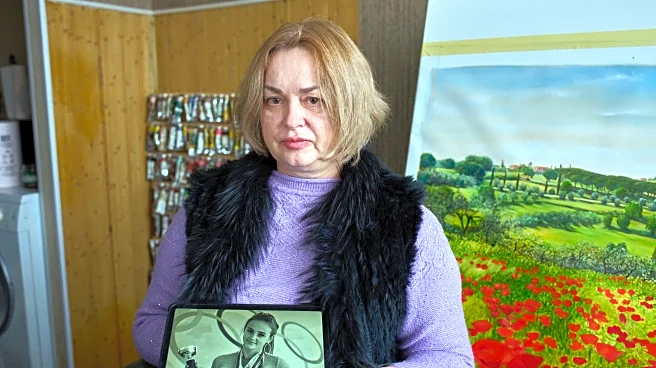What's Happening?
Marie Curie, an end-of-life organization, has released a comprehensive checklist aimed at helping individuals plan for end-of-life care. The checklist, developed by clinicians, includes five key categories:
legal and financial matters, personal relationships, care for pets and important belongings, advance care planning, and arrangements for funerals or celebrations of life. The initiative is designed to encourage people to consider their end-of-life preferences before their health significantly deteriorates or they receive a terminal diagnosis. According to a recent survey by the organization, 56% of people delay thinking about end-of-life plans until faced with serious health issues, and 63% acknowledge that such delays can lead to increased stress during crises. Additionally, 38% of respondents reported difficulty in finding information or support for end-of-life planning.
Why It's Important?
The introduction of this checklist by Marie Curie is significant as it addresses a common reluctance to engage in end-of-life planning, which can lead to unnecessary stress and confusion during critical times. By providing a structured approach, the checklist aims to empower individuals and families to make informed decisions about their future care and legacy. This proactive planning can alleviate the emotional and logistical burdens on loved ones, ensuring that personal wishes are respected and reducing potential conflicts. The checklist also highlights the importance of considering all aspects of one's life, including legal, financial, and personal matters, which can have far-reaching implications for families and caregivers.
What's Next?
As the checklist gains traction, it is expected that more individuals will begin to engage in end-of-life planning earlier, potentially leading to a cultural shift in how such matters are approached. Healthcare providers and legal advisors may also play a more active role in facilitating these discussions, offering guidance and resources to support individuals in their planning efforts. Additionally, the checklist could inspire similar initiatives by other organizations, further promoting awareness and preparedness for end-of-life care.
Beyond the Headlines
The checklist not only addresses practical concerns but also touches on the emotional and ethical dimensions of end-of-life planning. By encouraging individuals to consider their relationships, memories, and personal values, the checklist fosters a holistic approach to planning that respects the dignity and individuality of each person. This initiative may also prompt broader societal conversations about death and dying, challenging taboos and encouraging open dialogue about these inevitable aspects of life.










